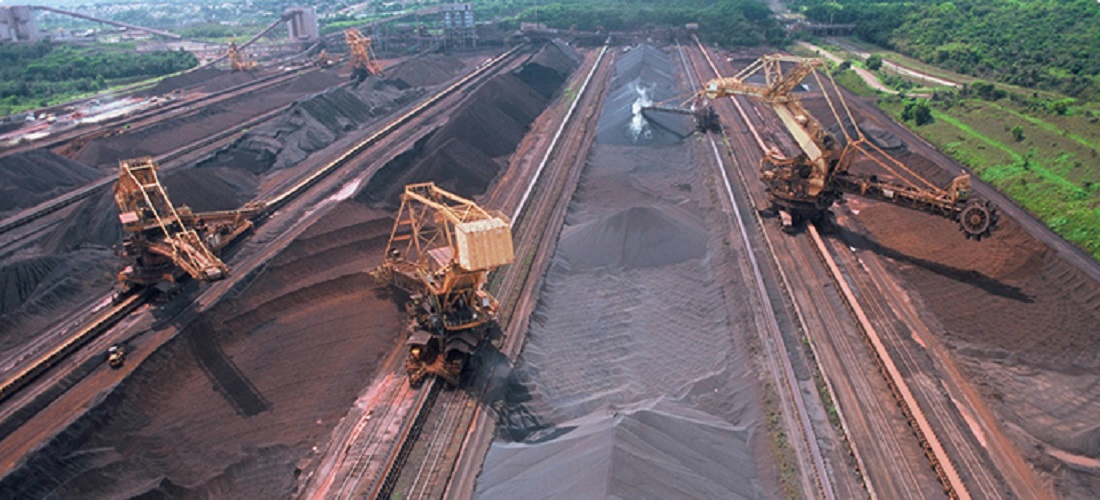
Chinese real estate sector threatens iron ore exports from Brazil
Aug, 28, 2023 Posted by Gabriel MalheirosWeek 202336
The Chinese National Bureau of Statistics released another negative data point for the country’s economy on Sunday (27), with industrial profits showing a 6.7% decline in July compared to the same month last year. However, this drop was less severe than the 8.5% decrease recorded in June.
The Chinese real estate sector, which is at the heart of the country’s recession, is of particular concern for Brazilian exports. The building industry consumes iron ore from Brazil and Australia, accounting for 40% of China’s steel consumption.
Evergrande, which started China’s economic problems over a year and a half ago with its liquidity crisis, asked last week for the resumption of trading of its shares on the Hong Kong Stock Exchange on Monday (28). Trading had been suspended since March of the previous year.
Alongside its request for protection submitted in the United States ten days ago, this action is part of the debt restructuring process. On a positive note for the Hong Kong Stock Exchange, Evergrande’s subsidiary for real estate services reported a 43% growth in profits for the first half of the year.
However, Evergrande’s symbolic return to the financial market is in contrast with the issues faced by its competitor, Country Garden, which two weeks ago signaled “uncertainties” regarding bond payments. On Friday (25), Country Garden postponed a decision on extending the bonds due to a lack of shareholder support.
In the first half of this year, the sales of the real estate developer dropped by 30% compared to the same period in 2022.
The chart below displays Brazil’s exports of iron ore (hs code 2601), measured in tonnes, between Jan 2019 and Jun 2023. The data below was collected with DataLiner.
Iron ore exports to China | Jan 2019 – Jun 2023 | WTMT
Source: DataLiner (click here to request a demo)
Brazil is closely monitoring the fluctuations in China’s data on a daily basis, stated the Minister of Finance, Fernando Haddad, during a press conference in South Africa. “We continue to follow the most recent developments, but the diagnosis is not yet concluded, as different people have different views on the scope of the problem,” he said.
He added that the situation still warrants caution, but the size of the problem is not sufficiently clear based on the information received. Haddad also mentioned that attention from abroad is also focused on the United States and Argentina, referencing the record-high long-term interest rates in the US.
Fellow Australian official, Jim Chalmers, told Sky News on Sunday (20) that he is also “closely monitoring the [Chinese economy] situation with concern,” citing the Chinese real estate sector and the “obvious implications for Australia,” a major exporter of iron ore and other raw materials.
Tatiana Prazeres, the Secretary of Foreign Trade at the Ministry of Development, when contacted, said that “a decrease in activity in China’s real estate sector affects its demand for steel and iron ore, but Brazilian ore is very competitive” due to its quality and iron content.
Overall, she continued, while acknowledging the deceleration, “exports to China continued to perform very positively.” She emphasized the importance of caution but maintained the projection that they could reach $90 billion this year, “a slight increase” compared to 2022.
“We monitor our sales to China on a weekly basis, and the results confirm the positive outlook for the year,” she said. “Exports of corn, followed by soybeans, iron ore, oil, and sugar, are driving the recent growth of our sales to China, even with prices working against us.”
The Australian mining company BHP, the main competitor of Brazilian company Vale in the Chinese market, stated last week upon announcing its first-half results that “demand for commodities has remained relatively robust in China and India,” despite a “substantial” reduction in developed countries.
In the short term, it added, “China’s trajectory depends on the effectiveness of recent measures and the implementation of stimulus policies, particularly in relation to the real estate sector.” Nevertheless, Chinese demand remains “reasonably healthy,” mentioning sectors like automobiles.
The Chinese government continues to announce stimulus measures, particularly for the real estate sector. On Friday, it extended a tax incentive for property buyers by two years and allowed individuals with a mortgage to borrow money to buy another property. While the stock markets briefly rose, the effects were short-lived.
On the other hand, there is another sign that Beijing will not interfere significantly beyond these measures. A columnist from Jingji Ribao (Economic Daily), a financial newspaper linked to the Chinese Communist Party, reiterated a phrase from Xi Jinping that guides China’s restraint in the sector: “Houses are for living in, not for speculation,” a statement he made six years ago.
Source: Folha de S. Paulo
To read the original news report, see: https://www1.folha.uol.com.br/mercado/2023/08/setor-imobiliario-chines-ameaca-exportacao-de-minerio-de-ferro-do-brasil.shtml
-
Other Cargo
Dec, 07, 2020
0
Customs offices worldwide prepare for Covid-19 vaccine distribution
-
Ports and Terminals
Aug, 22, 2022
0
Workers at UK’s biggest container port due to begin 8-day strike
-
Ports and Terminals
Dec, 20, 2021
0
Santos Port Authority will change its charging strategy in 2022
-
Meat
Sep, 30, 2022
0
Poultry exports from Brazil on course to grow 11% in 2022: USDA


